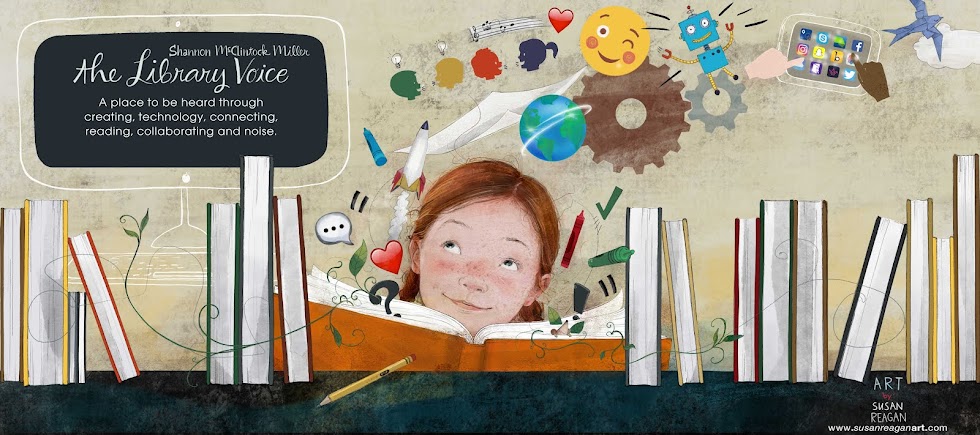Two days ago I got a text from my friend Stacey who also teachers at Van Meter. She told me that there was a project that she would like me to collaborate on with her and the teacher she has taught with for the last 4 years.
One thing that makes this collaboration unique....They are in two different schools in Iowa. Kim Huegerich of South Hamilton Schools in Jewel and Stacey Wigant of Van Meter Community School are finishing the year out with a team collaboration project in Spanish 3.
Students will communicate in the target language to learn about topics of three countries and compare and contrast each topic. Students will work as a team to build three whole-class joint presentations, researching and learning from native speakers. They will be responsible for asking questions in the target language about other topics from their peer groups and answering those questions along with writing a final summary of what they learned.
Stacey and Kim have been doing this type of collaboration for the past 4 years and are always finding new spins and twists to connect their two classrooms.
Today they started a new Twitter for their collaboration called @vozespanol.
Kim, Stacey and I tweeted out the new account throughout the day because we are looking for people to connect with our students.
And this tweet says it all!
By going to their Google Doc native speakers can help out the students by answering these culture questions.
The students are going to be monitoring and participating in this Google Doc as well throughout this project, as you can see in this picture.
Thank you so much and please let us know if you have any questions. This is going to be a very rewarding and fun project for these Spanish students in Iowa.
We are going to bring the cultures to them that they are learning about which will make the last few weeks of the this school year even more relevant and special.
Thank you friends.
(The following is the information from the Google Doc for the project.)
La cultura hispánica; tópicos libres
Objective:
To be able to explore and analyze key cultural concepts amongst Spanish speaking countries.
Learning Target:
I can describe key cultural concepts in multiple Spanish speaking countries.
I can compare and contrast similarities and differences between cultural concepts and different countries.
I can describe, in my best Spanish and using my own words, the key points and can ask and answer questions to further my understanding on the concepts.
I can collaborate with native speakers about their culture.
Steps:
1. Choose a cultural concept from the list below. Sign up with your email address
2. Divide the countries between your group members and begin collaborating with your team via school email immediately. Be sure to cc your emails to: colaboradores@gmail.com This will go to all teachers involved as well. Use this organizer to help guide you through the project.
3. Investigate the who, what, how, where, when and why of the topic.
Who (people) practices the cultural norm around the concept?
What is the cultural norm of the country? What is the history behind this cultural norm?
Where is the cultural norm practiced (what country)--region?
How is the cultural norm practiced in specific country? How has history influenced it?
When is the cultural norm practiced?
Why is the cultural norm practiced?
4. Use at least 1 native speaker contact (through gdoc) to enhance your investigation and ask a deeper question from your research of the above questions. You should also have at least 2 additional resources documented [wikipedia is not sufficient]. Use Symbaloo link to help if stuck.
5. Create a google presentation with photos and key statements describing the key points. You should record an audio narration in Spanish at least one slide. Each slide should be annotated in Spanish. You will upload your presentation and include your name in the notes section under the slides you upload.
6. Watch the presentations about the other topics by students not from our school. Record your key points of information on the organizer and choose 3 topics to learn about more from a country. Ask 1 question of 3 topics from different countries of your peers. LINK:To ask/answer questions of peers: Questions need to be in Spanish. (Questions need to reflect wanting to know the concept deeper, not just superficial questions. These should reflect knowledge of the Hispanic culture, not your American culture.) For example, “Do you like the clothes?” vs “Why is the huipil worn that way?” Answer your peer’s questions for each topic.
7. Write a summary in Spanish of what you have learned from your research and watch the presentations your teammates created about your topic in the country they chose and in your summary include a comparison of the similarities and differences of the culture behind your topic in the selected countries. Also include some key points you learned from the three other presentation components you watched.
**Individual responsibility will be to respond to all questions asked and write a reflection to be submitted to your teacher describing what you learned from each of the topics and the countries that they reflected. This reflection will be in Spanish.
Due Dates: Research and obvious collaboration efforts
Questions posted on gdoc for native speakers: Thursday May 9th
Presentation posted by: Monday May 13th in links: Spain Costa Rica Peru
Questions for collaboration posted by: Wednesday May 15th
Responses to collaboration posted by: Thursday May 16th
Reflection to teacher by: Friday May 17th
Assessment will include
Pronunciation - Spanish phonetics, grammar, and vocabulary, not English
Completeness of presentation - answer all investigative questions, successfully complete all steps collaboratively with your team
Grammatical Usage- uses appropriate level, no translator, well-edited
Visually appropriate - has appropriate pictures, videos, and descriptions
Digital citizenship - communicates appropriately online with team members
Written reflection - uses correct grammar, punctuation, has thorough, reflective answers








No comments:
Post a Comment